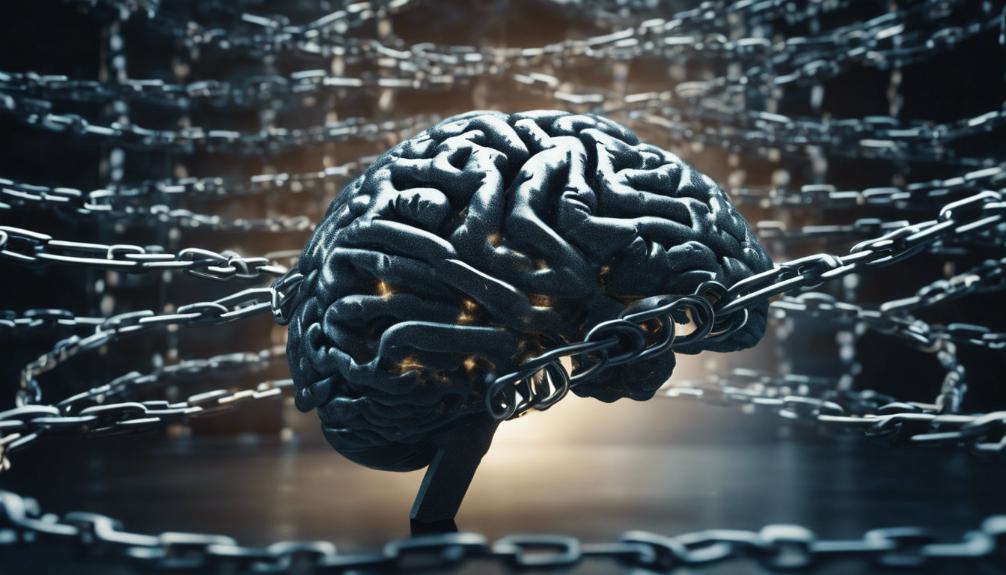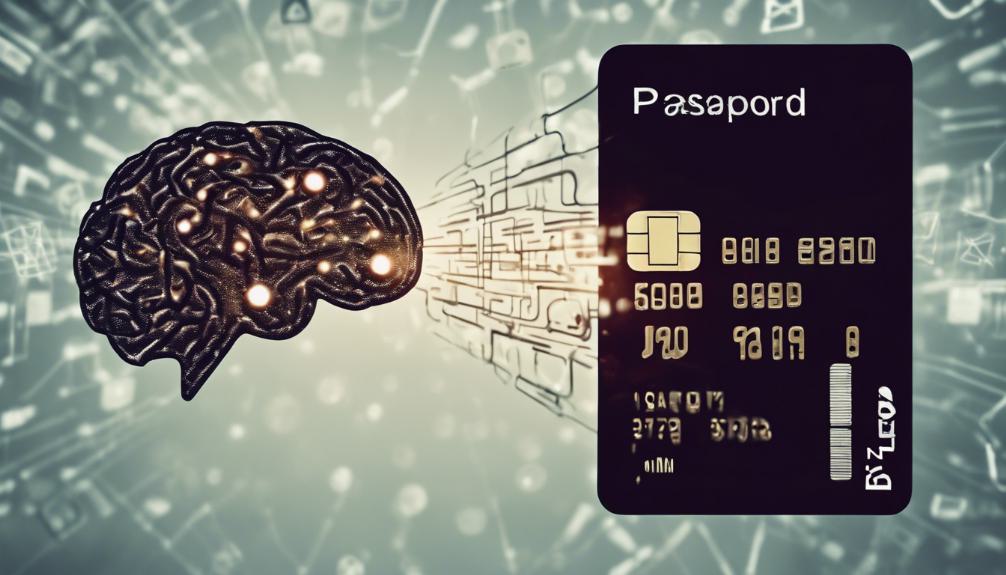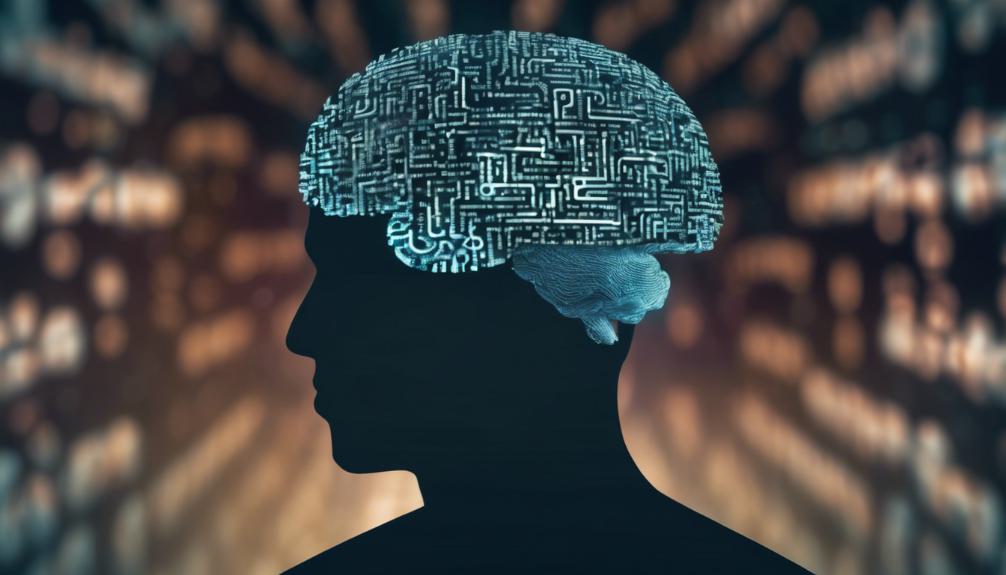Cerebral Data Breach Risks User Identity Theft
The recent data breach involving Cerebral, a leading mental health service provider, has cast a stark light on the vulnerabilities inherent in digital health platforms. With personal and medical information of over 3 million users compromised, the incident not only raises serious concerns about privacy and security in the healthcare sector but also underscores the potential for identity theft. As we navigate the implications of this breach, it becomes essential to examine the measures taken by Cerebral in response, the legal options available to affected users, and the broader ramifications for the industry. This discussion invites a deeper exploration of how digital health services can fortify their defenses against such breaches, ensuring the protection of user data against emerging threats.
Key Takeaways
- Cerebral's data breach exposed personal details of 3.17 million users, including health information.
- No Social Security, credit card, or bank account information was leaked.
- Victims risk phishing attacks and are advised to reset passwords and monitor credit.
- Cerebral offers one free month of credit monitoring to affected users.
Data Breach Overview

In a significant security lapse, the mental health service provider Cerebral experienced a data breach, compromising the personal information of 3.17 million users through an exposed tracking pixels feature. This incident highlights the critical need for robust data protection measures, especially in services dealing with sensitive personal information. The breach underscores the vulnerability of digital health services to cyber threats, posing significant risks to user privacy and security. As professionals dedicated to serving others, it is imperative to understand the importance of safeguarding client information. This incident serves as a stark reminder of the ongoing challenges in protecting digital health data and the need for continuous vigilance and improvement in cybersecurity practices within the healthcare industry.
Affected User Information

The data breach at Cerebral compromised a wide array of personal information for approximately 3.17 million users, ranging from full names and contact details to sensitive health and treatment information. This incident exposed individuals' privacy and security, putting them at risk of identity theft and fraud. The leaked details included phone numbers, email addresses, dates of birth, IP addresses, demographic information, self-assessment responses, subscription plan types, appointment dates, treatment details, health insurance, pharmacy benefit information, and Cerebral client ID numbers. Fortunately, Social Security numbers, credit card, and bank account information were not exposed. This breach underscores the importance of safeguarding personal and health information and highlights the potential consequences of such data falling into the wrong hands.
Exposure Timeline

Potential exposure of sensitive user data through Cerebral's data breach spanned from October 12, 2019, to January 3, 2023, affecting millions of individuals. This extensive timeline underscores the prolonged vulnerability of users' personal information, highlighting a critical window during which data was potentially compromised. The breadth of this exposure period necessitates a thorough investigation and reflection on the part of organizations to prioritize the safeguarding of client data. Those serving in cybersecurity and data protection roles are reminded of the imperative to continuously monitor and enhance data security measures. This incident serves as a sobering reminder of the ongoing challenges faced in protecting sensitive information in an increasingly digital world, compelling a collective effort towards more robust data protection strategies.
Potential Threats Unveiled

Building upon the understanding of the extensive exposure timeline, it becomes essential to examine the specific risks and threats that users now face due to the Cerebral data breach. The leaked information encompasses a wide range of personal and sensitive data, making affected individuals highly susceptible to identity theft, fraud, phishing attacks, and other forms of cyber exploitation. Given the nature of the data involved, including health insurance and pharmacy benefit information, the breach not only jeopardizes the financial security of these individuals but also their privacy and confidentiality regarding personal health information. It is important for those impacted to be vigilant and proactive in safeguarding their information, recognizing the heightened risk of malicious activities aimed at exploiting their exposed data.
Cerebral's Immediate Response

In response to the data breach, Cerebral promptly initiated measures to mitigate the impact on affected users, including offering credit monitoring services and urging password resets. Understanding the severity of the situation, the company took immediate steps to secure its systems and prevent further unauthorized access. They also launched an investigation to fully understand the scope of the breach and to identify any potential weaknesses in their security protocols. Cerebral communicated transparently with its users, informing them of the breach and providing detailed instructions on how to protect themselves from potential identity theft and fraud. This included guidance on resetting passwords, monitoring account activities, and how to utilize the credit monitoring services provided. The company's swift and thoughtful response underscores its commitment to user safety and data protection.
Importance of Credit Monitoring

Following Cerebral's proactive measures in response to the data breach, it is important to underscore the significance of credit monitoring as a tool for safeguarding against identity theft and fraud. This thorough measure serves as an early warning system, alerting individuals to any unusual activities or changes in their credit reports that may indicate unauthorized use of their personal information. For those dedicated to serving and protecting others, recommending or facilitating access to credit monitoring services can be a critical component of a all-encompassing support strategy. By doing so, they not only help in mitigating the immediate risks but also contribute to a culture of vigilance and responsibility, empowering individuals to take control of their financial health and security in the wake of such breaches.
Identity Theft Risks

The recent data breach at Cerebral, affecting millions, underscores the heightened risk of identity theft facing its users. This alarming incident revealed extensive personal information to unauthorized third parties, including names, contact details, demographic data, and sensitive health information. While financial data such as Social Security, credit card, and bank account numbers were not exposed, the breadth of personal information leaked is significant enough to enable malicious actors to construct highly targeted phishing scams or commit identity fraud. For individuals dedicated to helping others, understanding the gravity of this situation is essential. It's a stark reminder of the vulnerabilities in digital health platforms and the profound responsibilities these organizations bear in safeguarding user data against identity theft risks.
Preventive Measures Recommended

Given the substantial risk of identity theft from the Cerebral data breach, users are strongly advised to implement several preventive measures immediately. To safeguard personal information, individuals should promptly change their passwords, ensuring they are strong and unique. Engaging in regular monitoring of bank accounts and credit reports can help detect unauthorized activities early. Subscribing to a credit monitoring service, which Cerebral offers for free for a month, can provide an additional layer of protection. It's also important to be vigilant against phishing attempts; do not click on suspicious links or provide personal information in response to unsolicited communications. By taking these steps, users can greatly reduce their risk of identity theft and protect their personal and financial well-being.
Understanding Your Rights

After implementing preventive measures to protect against identity theft, it's equally important for affected individuals to be aware of their legal rights and the steps they can take in the aftermath of the Cerebral data breach. Understanding these rights is vital in maneuvering the complexities of data privacy and protection laws. Those impacted have the right to be informed about the extent of the breach and the specific data compromised. They are also entitled to access support services provided by Cerebral, such as credit monitoring. Knowing one's rights aids in recognizing the importance of vigilance in monitoring personal information for any signs of unauthorized use, thereby fostering a proactive approach to personal data security and contributing to a culture of mutual aid and protection in the community.
Legal Recourse Options

Exploring legal recourse options is an important step for individuals affected by the Cerebral data breach, aiming to understand and pursue potential remedies for their losses. Those impacted have several paths to contemplate, including individual lawsuits or joining class action suits if available. Consulting with legal professionals who specialize in data breach cases can provide guidance on the best course of action based on the specifics of their situation. Victims may seek compensation for damages such as unauthorized use of personal information or emotional distress. Additionally, it is advisable to keep records of any related expenses or impacts, as these can be critical in legal proceedings. Engaging in legal action not only seeks to rectify personal harm but also serves to promote greater accountability and data protection standards in the industry.
Broader Industry Ramifications

Understanding the potential legal remedies for individuals impacted by the Cerebral data breach underscores the broader implications such incidents have on the healthcare and digital service industries. The ramifications extend beyond the immediate concerns of identity theft and privacy violations, highlighting a critical need for stringent data protection measures and transparent communication strategies. These breaches serve as a stark reminder to organizations within these sectors of their ethical and legal obligations to safeguard user information diligently. For professionals committed to serving others, this incident emphasizes the importance of fostering trust through robust security protocols and responsive action in the face of vulnerabilities. It calls for a collective industry effort to elevate standards, ensuring that the privacy and well-being of users are paramount in the digital age.
Comparing Healthcare Breaches

The recent data breach at Cerebral, impacting over three million users, underscores a growing concern within the healthcare industry as similar incidents at PostMeds and Apria Healthcare reveal a significant pattern of vulnerabilities. These breaches not only compromise sensitive personal and health information but also erode trust between healthcare providers and those they serve. For individuals dedicated to aiding others, understanding the scope and similarity of these breaches is essential. They highlight the urgent need for enhanced data protection measures across the sector. By comparing these incidents, it's clear that the healthcare industry must prioritize the security of patient data to prevent identity theft, maintain confidentiality, and uphold the sacred trust placed in them by individuals seeking care and support.
Navigating Post-Breach Actions

Having examined the comparative severity of recent healthcare data breaches, it is imperative to focus on the steps individuals can take to mitigate the impact of such incidents on their personal and financial well-being. In the wake of the Cerebral data breach, affected users should promptly change their passwords and consider enrolling in the offered free credit monitoring service. Vigilance against phishing attempts through email or SMS is essential. Moreover, individuals may explore their legal rights and possible recourse, ensuring they are fully informed of their options to protect themselves. By taking these proactive measures, individuals can greatly reduce their risk of identity theft and fraud, thereby safeguarding their privacy and financial integrity in a compassionate and responsible manner.
Frequently Asked Questions
How Can Affected Users Safely Communicate Their Concerns With Cerebral Without Risking Further Exposure of Their Personal Information?**
To safely address concerns with Cerebral, affected users should utilize secure communication channels provided by the company, such as encrypted email or a dedicated helpline. It's imperative to avoid sharing sensitive information through unsecured or public platforms. Users should refer to official Cerebral communications for verified contact methods and follow any instructions provided for secure correspondence. Engaging in these precautions minimizes the risk of further exposure of personal information.
Are There Specific Signs or Patterns That Individuals Should Watch for on Their Credit Reports to Identify if Their Leaked Information Has Been Misused Following the Cerebral Data Breach?**
In an ironic twist, vigilance becomes a virtue post-data breach. Individuals should monitor their credit reports for unfamiliar activities, such as unauthorized accounts or inquiries, which can signal misuse of their leaked information. Additionally, sudden changes in credit scores, unrecognized addresses, or names linked to their profiles are red flags. Proactive measures, including regular credit monitoring, can help mitigate the risk of identity theft and protect one's financial well-being.
How Can Users Who Were Affected by the Breach but Do Not Reside in the United States Seek Protection or Recourse, Considering the Different Data Protection Laws in Other Countries?**
Users affected by the breach residing outside the United States should consult local data protection authorities for guidance, as data protection laws vary by country. Initiating contact with these authorities can provide information on rights and possible actions against the breach. Additionally, engaging legal counsel specializing in data protection in their jurisdiction may offer tailored advice and support in seeking recourse. Monitoring financial statements and online accounts for unauthorized activities is also universally advisable.
What Are the Long-Term Psychological Impacts on Users Knowing Their Sensitive Health Information Has Been Compromised, and How Can They Seek Support?**
The revelation that one's sensitive health data has been compromised can lead to long-term psychological impacts, including stress, anxiety, and a loss of trust in digital healthcare providers. A staggering 3.17 million users were affected in this breach, underlining the extensive scope of potential distress. To seek support, individuals are encouraged to engage in counseling services, utilize free credit monitoring offers, and participate in community support groups focused on data breach recovery.
Beyond the Offered Credit Monitoring, Are There Any Additional, Proactive Steps Cerebral Is Taking to Prevent Future Breaches or to Enhance Data Security for Its Users?**
In response to concerns regarding data security, Cerebral is actively enhancing protective measures beyond the initial one-month offer of credit monitoring. These efforts aim to fortify data privacy and prevent future breaches. While specific strategies have not been publicly detailed, it's anticipated that Cerebral will implement stronger encryption, improve internal security protocols, and possibly revise data sharing policies. Such proactive steps are critical in restoring user trust and safeguarding personal information against unauthorized access.
Conclusion
To sum up, the Cerebral data breach has catapulted the issue of digital health security into the stratosphere of public concern, exposing the Achilles' heel of the healthcare industry: data protection. With millions of users' personal information compromised, the breach not only underscores the fragility of digital privacy but also serves as a clarion call for immediate, fortified measures against potential identity theft and fraud. The response and remediation efforts by Cerebral, while commendable, highlight the imperative for an industry-wide elevation in data security protocols.

This post has been generated by AI and was not reviewed by editors. This is Not legal advice. Please consult with an attorney.
